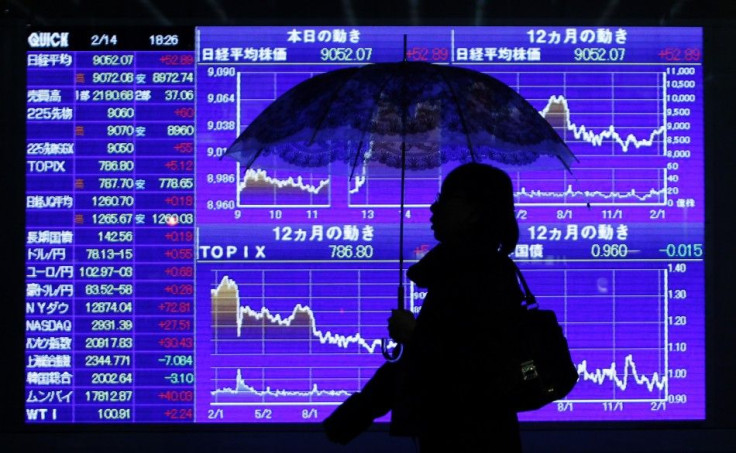Asian Stocks Fall On Weak US, China Data

Asian markets fell Wednesday as investors' concerns about the weakening global economy was revived by the declining U.S. manufacturing activity and disappointing China's services activity.
Chinese Shanghai Composite fell 0.11 percent or 2.18 points to 2041.47 and Hong Kong's Hang Seng was down 1.06 percent or 205.92 points to 19223.99. Among major losers were Sands China Ltd (3.35 percent) and CNOOC Ltd (2.33 percent).
South Korea's KOSPI Composite Index dropped 1.40 percent or 26.69 points to 1880.44. Shares of Samsung Electronics Co Ltd fell 1.31 percent and those of LG Electronics Inc rose 2.35 percent.
Japan's Nikkei Stock Average was down 0.83 percent or 73.17 points to 8702.34. Among major losers were NEC Corp (5.26 percent), Toho Zinc Co Ltd (4.98 percent) and Mitsui OSK Lines Ltd (4.62 percent).
India's BSE Sensex fell 0.46 percent or 80.91 points to 17359.96. Among major losers were Sesa Goa (1.35 percent), Suzlon Energy Ltd (1.11 percent) and Axis Bank Ltd (0.95 percent).
Investors were focused on the Institute of Supply Management's (ISM) U.S. Manufacturing Purchasing Managers' Index (PMI) reported Tuesday. The ISM manufacturing index, which rates the relative level of business conditions including employment, production, new orders, prices, supplier deliveries and inventories declined to 49.6 in August, down from 49.8 in July. On the index, a level below 50 indicates industry contraction.
China's services activity growth declined in August to the slowest pace in a year after the recovery in July, according to the HSBC Purchasing Managers' Index (PMI) released Wednesday. The services PMI dropped to 52 in August compared to 53.1 in July.
The index continues to remain in the area of expansion since the reading is above 50. But the fall in the reading would increase fears of the likelihood of a sharp slowdown in the economy.
There have been fears of a hard landing after data showed that China's economy slowed down to 7.6 percent in the second quarter, down from 8.1 percent in the first quarter. Beijing is targeting a growth rate of 7.5 percent this year. In 2011 and 2010, the economy grew by 9.2 percent and 10.4 percent respectively.
© Copyright IBTimes 2025. All rights reserved.





















